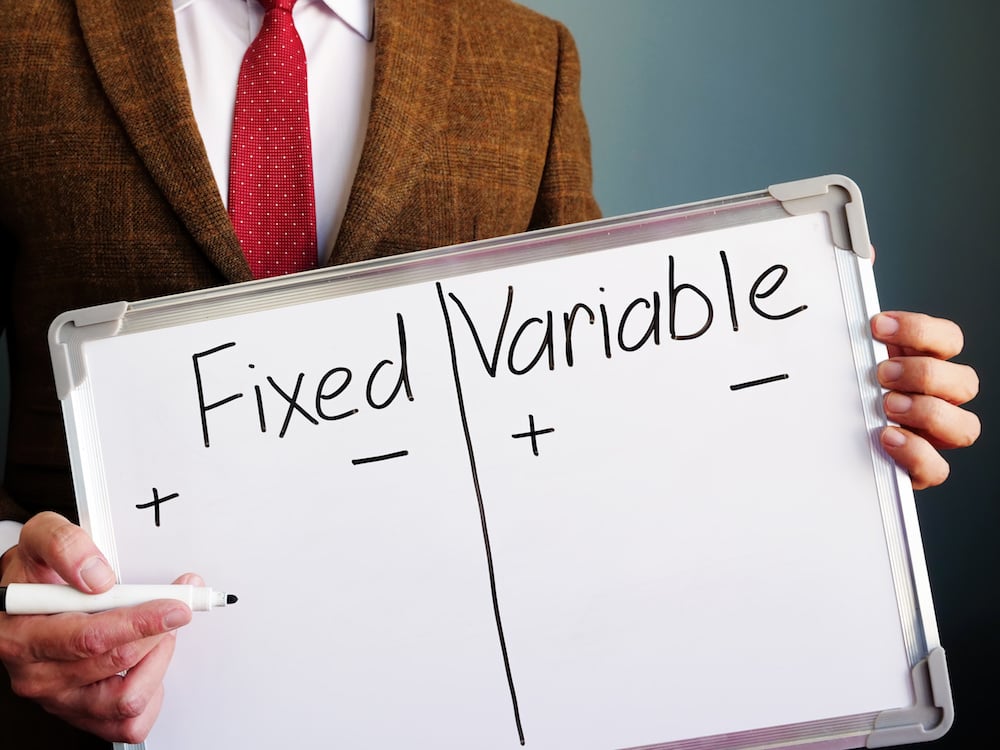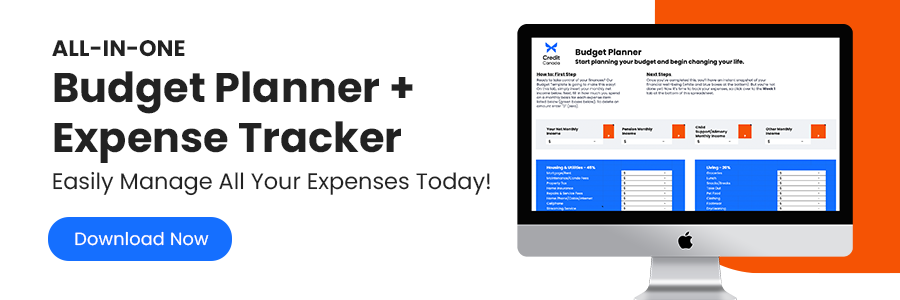
Fixed vs Variable Rate Mortgages: What’s the Difference?
Buying a home is an exciting time! Of course, it can also be very complicated and there are lots of "i’s" to dot and "t’s" to cross. One of the first things new homebuyers must do is decide whether to choose a fixed rate or a variable rate mortgage. Of course, some homebuyers, especially first-timers moving our of their parents' home or finally saying goodbye to renting, may not even be sure what the difference is!
So, before delving into the pros and cons of a fixed rate vs. variable rate mortgage, let’s be sure we’re on the same page about what exactly they are with some basic definitions.
What Is a Fixed-Rate Mortgage?
A fixed-rate mortgage means that the interest rate of the mortgage will remain the same until the mortgage comes up for renewal (many begin as a 5-year fixed rate mortgage, but others can go much longer).
Fixed-rate mortgages are determined by the Government of Canada’s bond yields at the time of purchase, and doesn’t change even if the bond yields do. Therefore, there are no surprises; you know, month in and month out, how much of your mortgage payment will go toward interest and how much will go toward your principal for the length of the term.
What Is a Variable-Rate Mortgage?
A variable-rate mortgage (also known as an adjustable rate mortgage or ARM) means that the interest rate of the mortgage will fluctuate throughout the term. It is determined by the Bank of Canada’s lenders’ prime rates, which are the interest rates on loans that the banks are currently offering to their best customers (see the current prime rate here).
The variable mortgage rate is set at prime plus/minus a discount or premium. So, let’s say you're given a mortgage rate of prime -0.5% or prime +0.2%. If the prime rate increases during the term, so does your mortgage rate, and a larger portion of your mortgage payment will be used to pay off interest while a smaller portion will go toward the principal. If the prime rate decreases, the opposite is true.
Simply put, as the prime rate fluctuates over the term, for better or worse, the interest rate on your mortgage will fluctuate too.
Benefits of a Fixed-Rate Mortgage
When you make payments on a fixed-rate mortgage, the amount that goes towards the principal and the amount that goes towards interests will vary from month to month. The benefits you can expect from this type of mortgage include:
- Fixed-rate mortgages are easier to understand
- Mortgage payment amount will remain the same throughout the term of the mortgage
- You have a sense of security knowing what to expect
- It’s easier to budget for your household costs
- As the principal is reduced, the interest charged will also be reduced — and more of your payment will go towards the principal.
If you live on a strict budget and might have difficulty adjusting it or paying other expenses if your mortgage rate increases, even temporarily or ever-so-slightly, this may be the best option for you. You don’t want an unexpected increase, no matter how small, to cause any undue financial hardship (or anxiety) to you or your family.
Benefits of a Variable-Rate Mortgage
While knowing how much you’ll pay each month brings peace of mind, for some borrowers, the thought of initial lower monthly payments is very appealing. The benefits of going this route include:
- The variable rate is usually lower than the fixed rate (often below market rate)
- They tend to be less expensive over the term of the mortgage
- An initial lower payment may help you qualify for a larger loan
Do keep in mind that if you choose a variable-rate mortgage, you are at the whim of prime rate fluctuations. While you could end up saving money over the term of the mortgage, the rates could potentially increase significantly, leaving you with a much higher monthly payment.
By the same token, it’s common in Canada to obtain a mortgage term between a few months and five years. At the end of the term, you have to renew your mortgage. This gives you the option of switching to a fixed-rate mortgage or taking advantage of a lower interest rate if available.
Other Things to Consider When Choosing a Mortgage
While it’s crucial to take into account whether you would benefit more from a fixed or variable rate mortgage, that isn’t the only factor to consider when determining the best option for you. Think about all of the following:
- The amount of your down payment
- Mortgage rate comparisons from bank to bank
- The mortgage principal
- The amortization period
- Additional monies to add to monthly payment — such as title or flood insurance
- Property taxes
- The term of the mortgage
- Whether you can obtain a hybrid mortgage (yes, there is such a thing)
What Is a Hybrid Mortgage in Canada?
A hybrid mortgage (also known as a combination mortgage or a laddered mortgage) is a home loan that entails a fixed rate for a specific period of the mortgage, which then switches to a variable rate for the rest of the term.
While it may sound confusing, it provides the benefits of both options — you can take advantage of knowing the exact amount of your monthly mortgage payments for a time — while also taking advantage of a lower interest rate for a portion of the mortgage term. Depending on your lender, you may get a combination of terms that best suits your needs.
The downside of a hybrid mortgage is the risk of having an even higher mortgage rate during the variable-rate portion of the mortgage. You may also be required to pay fees if you switch lenders, and it may be more difficult to get approved for one if you have a lot of debt.
Additional Mortgage Resources
To help with your mortgage decision-making, be sure to check out some of our other popular home buying and mortgage blogs:
How Much Mortgage Can I Afford?
Mistakes to Avoid When Borrowing for Your First Home
The Best Advice for Canadian Home Buyers in One Blog
Credit Canada Can Help You Choose the Right Mortgage Option for Your Budget
Choosing a mortgage is a big decision, especially if you’re already carrying a lot of debt. We can help you with the latter! If you’re dealing with debt and looking for a way out, or just looking for an ear, our Credit Counsellors are here for you. All of our counselling is free, confidential, and non-judgmental. Call us at 1.800.267.2272 to book a phone appointment or contact us online.
Frequently Asked Questions
Have questions? We are here to help
A Debt Consolidation Program (DCP) is an arrangement made between your creditors and a non-profit credit counselling agency. Working with a reputable, non-profit credit counselling agency means a certified Credit Counsellor will negotiate with your creditors on your behalf to drop the interest on your unsecured debts, while also rounding up all your unsecured debts into a single, lower monthly payment. In Canada’s provinces, such as Ontario, these debt payment programs lead to faster debt relief!
Yes, you can sign up for a DCP even if you have bad credit. Your credit score will not impact your ability to get debt help through a DCP. Bad credit can, however, impact your ability to get a debt consolidation loan.
Most people entering a DCP already have a low credit score. While a DCP could lower your credit score at first, in the long run, if you keep up with the program and make your monthly payments on time as agreed, your credit score will eventually improve.
Anyone who signs up for a DCP must sign an agreement; however, it's completely voluntary and any time a client wants to leave the Program they can. Once a client has left the Program, they will have to deal with their creditors and collectors directly, and if their Counsellor negotiated interest relief and lower monthly payments, in most cases, these would no longer be an option for the client.

